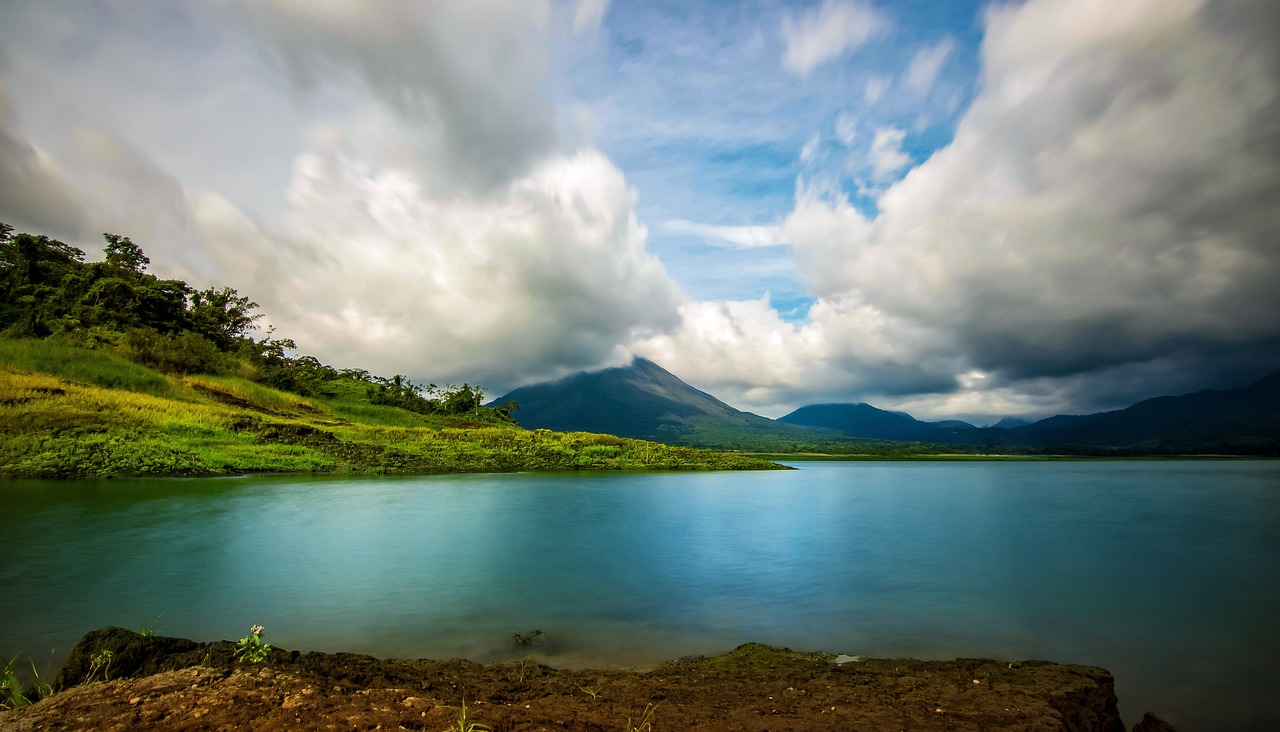Costa Rica Video
Coping with Power Outages: Being Prepared in Costa Rica
Power outages can occur unexpectedly, leaving you without electricity for hours or even days. In Costa Rica, power outages are not uncommon due to various factors such as severe weather conditions, maintenance work, or infrastructure issues. Being prepared for these situations is essential to ensure your safety and comfort. This article will provide detailed information on how to cope with power outages in Costa Rica, covering essential tips, resources, and recommended actions.
Section 1: Understanding the Causes of Power Outages
Power outages in Costa Rica can be caused by several factors. Understanding these causes can help you better prepare for potential outages and manage them effectively. Here are some common reasons for power outages:
- Weather Conditions: Severe storms, hurricanes, or strong winds can damage power lines and infrastructure, leading to power outages.
- Maintenance and Repairs: Scheduled maintenance or emergency repairs may require temporary power shutdowns in certain areas.
- Overloading and Equipment Failure: Overloading the power grid or equipment failure can result in localized or widespread outages.
- Natural Disasters: Earthquakes, floods, or landslides can damage power infrastructure and disrupt the electricity supply.
- Human Error: Accidental damage to power lines or equipment by construction work, vehicle accidents, or other human activities can cause outages.
It’s important to note that power outages can occur at any time, so being prepared is crucial.
Section 2: Creating an Emergency Preparedness Kit
Having an emergency preparedness kit is essential during power outages. Here’s a list of items to include in your kit:
- Flashlights and Batteries: Make sure you have multiple flashlights and extra batteries to provide illumination during the outage.
- Battery-Powered Radio: A battery-powered radio can help you stay updated on the latest news and emergency information.
- Portable Phone Charger: Keep a fully charged portable phone charger to ensure you can communicate with others.
- Non-Perishable Food: Stock up on canned goods, dry snacks, and other non-perishable food items that do not require refrigeration or cooking.
- Bottled Water: Store an ample supply of bottled water to meet your hydration needs during the outage.
- First Aid Kit: Have a well-equipped first aid kit that includes essential medical supplies and medications.
- Blankets and Warm Clothing: Prepare warm blankets and extra clothing layers to stay comfortable in case the outage occurs during colder weather.
- Basic Tools: Keep a set of basic tools, such as a screwdriver, pliers, and a wrench, for minor repairs or adjustments.
Having these items readily available will ensure you can manage the power outage situation more effectively.
Section 3: Identifying Reliable Alternative Power Sources
During prolonged power outages, having alternative power sources can greatly enhance your comfort and convenience. Here are some reliable options to consider:
- Portable Generators: Invest in a portable generator that can provide electricity for essential appliances and devices. Ensure proper ventilation and follow safety guidelines when using generators.
- Solar Power: Install solar panels to harness the abundant sunlight in Costa Rica and generate electricity for your home. This sustainable option can also help reduce your energy bills in the long run.
- Battery Backup Systems: Battery backup systems, such as uninterruptible power supply (UPS) units, can provide temporary power for critical devices like computers, routers, and medical equipment.
- Power Banks: Keep power banks or portable battery chargers to recharge your smartphones, tablets, and other small electronic devices.
Exploring these alternative power sources will ensure you have reliable access to electricity during an outage.
Costa Rica Image 1:

Section 4: Minimizing Power Consumption
During a power outage, it’s crucial to conserve energy to make the most of the available resources. Here are some tips to minimize power consumption:
- Turn Off Unnecessary Appliances: Switch off lights, fans, and non-essential electronics to reduce power usage.
- Use Natural Lighting: Open curtains and blinds during the day to maximize natural light and minimize the need for artificial lighting.
- Avoid Opening the Refrigerator: Limit opening the refrigerator or freezer to preserve the cold temperature inside and prevent food spoilage.
- Unplug Electronics: Unplug devices like TVs, computers, and chargers when not in use to avoid standby power consumption.
- Opt for Manual Options: Use manual can openers, hand-cranked radios, and other non-electric alternatives whenever possible.
Implementing these energy-saving measures will help prolong the availability of power resources.
Section 5: Staying Informed with Local Updates
Keeping yourself informed about the power outage situation and any updates from local authorities is essential. Here’s how you can stay informed:
- Local News and Radio Stations: Tune in to local news channels and radio stations for updates on power outages, restoration efforts, and safety instructions.
- Emergency Alert Systems: Register for emergency alert systems provided by local authorities to receive real-time notifications via text messages or phone calls.
- Social Media: Follow official social media accounts of relevant government agencies, utility companies, and emergency services for timely updates.
- Community Apps: Join community apps or online platforms where residents share information and updates about power outages in specific areas.
Staying informed will help you make informed decisions and stay safe during power outages.
Costa Rica Image 2:

Section 6: Protecting Electronics and Appliances
Power outages can pose risks to your electronic devices and appliances. Follow these steps to protect them:
- Unplug Sensitive Electronics: Disconnect sensitive electronics like computers, televisions, and gaming consoles to prevent damage from power surges when the electricity is restored.
- Use Surge Protectors: Plug essential devices into surge protectors to safeguard them against sudden voltage spikes.
- Keep Electronics Elevated: If there’s a risk of flooding during the outage, elevate electronics off the floor to prevent water damage.
- Secure Appliances: Ensure appliances like refrigerators and freezers are properly closed and secured to maintain the cold temperature during the outage.
Taking these precautions will help protect your valuable electronics and appliances.
Section 7: Ensuring Personal Safety
During a power outage, prioritizing personal safety is crucial. Here are some important safety measures to follow:
- Use Caution with Candles: If using candles for illumination, place them in sturdy holders and never leave them unattended.
- Avoid Carbon Monoxide Poisoning: If using a generator, ensure it is placed outdoors in a well-ventilated area to prevent the buildup of carbon monoxide gas.
- Prevent Fire Hazards: Avoid using open flames or cooking on gas stoves indoors to minimize the risk of fire accidents.
- Stay Hydrated: Drink plenty of water to stay hydrated, especially during hot weather.
- Be Mindful of Spoiled Food: Discard perishable food items that may have spoiled during the outage to avoid foodborne illnesses.
Prioritizing personal safety will help prevent accidents and maintain well-being during a power outage.
Section 8: Seeking Community Support
During prolonged power outages, communities often come together to support one another. Here are some ways to seek community support:
- Check on Neighbors: Reach out to neighbors, especially the elderly or vulnerable individuals, to ensure their well-being and offer assistance if needed.
- Community Resource Centers: Identify local community resource centers, shelters, or designated locations where residents can gather for support and information.
- Share Resources: If you have access to power or resources, consider sharing them with neighbors who may be in greater need.
Building a strong community network can help everyone cope better during power outages.
Costa Rica Image 3:

Section 9: Reporting Power Outages
Promptly reporting power outages to the relevant authorities can help expedite restoration efforts. Here’s how you can report outages:
- Contact the Power Company: Find the contact information of your local power company and report the outage via phone, website, or mobile app.
- Use Social Media: Some power companies have dedicated social media channels where customers can report outages or seek assistance.
- Report Multiple Outages: If you notice multiple outages in your area, inform the power company to ensure they are aware of the extent of the problem.
Reporting outages helps power companies prioritize restoration efforts and keep the community informed.
Section 10: Planning for Long-Term Outages
In rare cases, power outages in Costa Rica can last for an extended period. Here are some additional steps to consider for long-term outages:
- Temporary Accommodation: If the outage is expected to last for several days, consider seeking temporary accommodation with friends, family, or nearby hotels.
- Preserving Medications: If you rely on medications that require refrigeration, consult with your healthcare provider for guidance on how to store them during the outage.
- Stay Updated on Restoration Progress: Continuously monitor updates from the power company to stay informed about the progress of restoration efforts.
Planning for long-term outages ensures you are prepared for any unforeseen circumstances.
Section 11: Restoring Power After an Outage
Once the power is restored, it’s important to take certain precautions to ensure a smooth transition:
- Gradually Reconnect Electronics: Gradually reconnect and turn on electronics to avoid overloading the power system.
- Check Food Safety: Inspect perishable food items for spoilage before consuming them.
- Reset Appliances: Reset clocks, timers, and other appliances that may have been affected by the power outage.
Taking these steps will help ensure a safe and efficient restoration of power.
Section 12: References
– Costa Rica News: costaricnews.com
– Instituto Costarricense de Electricidad (ICE): ice.go.cr
– National Emergency Commission (CNE): cne.go.cr
– Costa Rica Tourism Board: visitcostarica.com
These references provide valuable information about power outages and emergency preparedness in Costa Rica.


